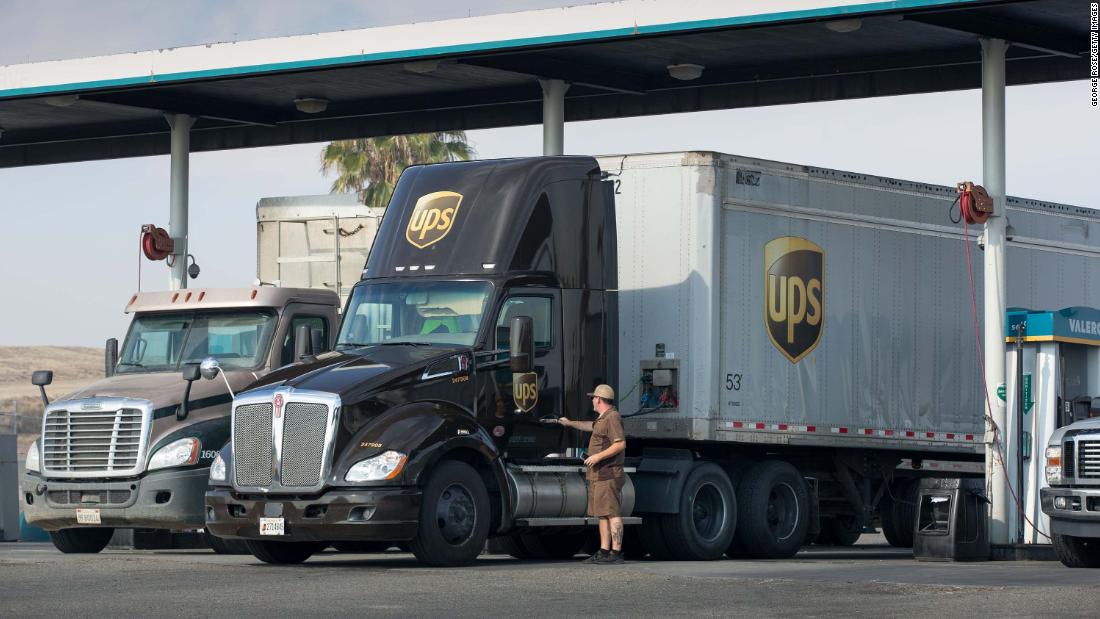
But when it comes to large US labor contracts, this is just the beginning.
There are another 700,000 union members in major industries across the country, who will likely sign new labor contracts after going on strike next year.
Each of these unions seeks not only lucrative contracts, but also significant changes to labor rules and guarantees of job security that can make it difficult to avoid work stoppages.
Here are some of the most important upcoming negotiations.
United Parcel Service
A majority of teamsters rejected the final UPS contract for 2018, but did not participate in enough votes to trigger a strike, prompting then-union president James Hoffa to agree to the offer. is ready.
O’Brien often talks about the $300 million in strike funds amassed by the union to pay union members in the event of a work stoppage.
O’Brien told CNN Business earlier this month, “Do union members wake up every day to strike? I would say no. But are they fed up? Yes, they are.” I’m fed up,” he said. “Whether there is a strike or not is entirely up to the company.
UPS said it hopes the two sides can reach an agreement and avoid the first national strike since 1997.And adding employees, including 72,000 new employees Union membership — even as other employers who are unionized have cut staff since the pandemic began.
The company said in a statement earlier this month, “We want a deal that will give UPS the flexibility to win for our employees and stay competitive in a rapidly changing industry.” I believe we will find it and reach a good agreement for all parties involved.”
UPS drivers and sorters are protected under different labor laws than those governing railroads, so the government does not have the same powers to prevent strikes as railroad workers.
Airlines
Airlines are one of the most organized industries in the country and these unions are among the most powerful. About 200,000 airline members have been months or even years since their last pay increase.
Airlines are covered under the same labor laws as railways. This means that the deal will not expire at a specific time.they become “fixable” If the contract term expires and no contract is formed, the existing contract will remain in place until a new contract is struck.
Members may strike or be barred out by an administrator only after a 60-day cooling-off period has elapsed since the federal mediator declared a deadlock in negotiations. During that period, the president’s panel will issue recommendations.
If a strike or lockout begins, it will end when both sides reach an agreement or Congress intervenes. Airlines negotiate with their own unions, so the strike will only ground one airline, but it’s still a nightmare for travelers.
As a result, union leaders do not know when union members will sign new contracts. Some have been waiting since 2019.
“Air travel is back….I think now is the right time [for new contracts]Greg Regan, President of Transportation and Trade at AFL-CIO, said: But it’s hard to say about timing. “
car manufacturer
Since then, there have been no plant closures.In fact, automakers have invested tens of billions of dollars in Build new plants or convert old plants from conventional gasoline vehicles to electric vehicles.
But that switch to EV could make future negotiations more difficult.
About 30% less labor is required to manufacture an EV than a conventional car or truck. This is because fewer parts are required for manufacturing.
This is a major concern for union members who build engines and transmissions. Earlier this month, more than 1,000 UAW workers at the Stellantis foundry in Kokomo, Indiana, came to work over the weekend, citing “community issues,” and were able to go on strike without triggering a company-wide shutdown. With parts from these factories keeping other factories running, Stellantis quickly settled in.
That settlement, however, does not address the looming question of what the switch to EV will mean for union members going forward.
that’s surely According to Bernard Swiecki, research director of the Center for Automotive Research, a Michigan think tank, it’s a key issue in future labor negotiations. “The planned switch to EVs is a big issue hanging out there,” he said.
Swiecki envisions the UAW wanting to push the issue in this round of negotiations, rather than waiting for a further switch to EVs.
Referring to the 2009 restructuring of GM and Chryser and subsequent new deals at all automakers, Swiecki said, “Cleaning up the unions at EV battery factories is perhaps the most interesting series of events since the bankruptcy days. It will be a negotiation,” he said.
.
